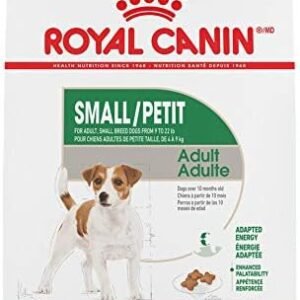Introduction
Are you a fan of delicious, tangy tomato sauce? Many of us enjoy adding this flavorful condiment to our pasta, pizza, or other dishes. But what about our canine companions? Dogs are known for their varied tastes and appetites, and they often try to snag a bite of whatever we’re eating. You may have wondered, can dogs eat tomato sauce?
In this article, we’re diving into the world of dogs and tomato sauce. We’ll uncover whether this popular human food is safe for our furry friends or if it’s best kept out of their reach. Just like humans, dogs have dietary needs and restrictions, and it’s crucial for responsible pet owners to understand what’s suitable for their four-legged companions. So, can dogs enjoy the savory delight of tomato sauce? Let’s explore the facts, benefits, risks, and guidelines for feeding tomato sauce to your dog.

Table of Contents
Can Dogs Eat Tomato Sauce?
Tomato sauce, a versatile and flavorful addition to many dishes, is a favorite for countless individuals around the world. But what about our canine companions? Can dogs partake in the joy of tomato sauce, or is it better kept on the human side of the table?
Exploring the Safety and Nutritional Aspects
Let’s delve into the world of tomato sauce and its compatibility with our furry friends. It’s essential to begin by understanding whether tomato sauce poses any significant risks to dogs or if it can be a part of their diet in moderation.
Tomato Sauce and Dogs: Is It Safe?
Tomato sauce is not inherently toxic or dangerous to dogs. The ripe, red tomatoes used to prepare tomato sauce contain a variety of nutrients, including vitamins and minerals. Many dogs might find the taste of tomato sauce appealing due to its savory and slightly sweet flavor. However, before we explore the potential benefits of this sauce, it’s crucial to be aware of certain caveats.
While tomato sauce can be safe for dogs in moderation, there are a few key considerations to keep in mind. One important point is that tomato sauce should not replace your dog’s primary diet. It should be viewed as an occasional treat rather than a staple food. Here’s why:
The Drawbacks of Tomato Sauce for Dogs
Salt Content: Many tomato sauces, especially those used in human cooking, contain high levels of salt, which is not suitable for dogs in excessive amounts. High sodium intake can lead to issues like dehydration, increased blood pressure, and electrolyte imbalances in dogs.
Spices and Seasonings: Tomato sauces often include spices and seasonings like garlic and onions. These ingredients can be toxic to dogs and should be avoided.
Added Sugars: Some tomato sauces can contain added sugars, which, if consumed in large quantities, can lead to weight gain and dental problems in dogs.
- Allergic Reactions: While tomatoes themselves are not a common allergen for dogs, some may experience allergic reactions to specific components of tomato sauce. It’s essential to monitor your dog for any signs of food allergies if you decide to introduce tomato sauce into their diet.
Nutritional Benefits of Tomato Sauce for Dogs
Now that we’ve addressed the potential drawbacks, it’s worth mentioning that tomato sauce does have some nutritional benefits for dogs when offered in moderation. Tomatoes are a good source of several essential nutrients:
Vitamins: Tomatoes contain vitamins such as vitamin C, which can help support your dog’s immune system, and vitamin K, which is crucial for blood clotting.
Minerals: They also provide minerals like potassium, which is vital for proper muscle and nerve function, and folate, essential for cell division and overall health.
Antioxidants: Tomatoes are rich in antioxidants, such as lycopene, known for their potential to combat oxidative stress and promote overall well-being.
Nutritional facts of tomato sauce
To provide a clearer picture of the nutritional content, let’s take a look at a table summarizing the nutritional facts of tomato sauce:
| Nutrient | Quantity per 100g |
|---|---|
| Calories | 32 kcal |
| Protein | 1.6 g |
| Carbohydrates | 6.9 g |
| Sugars | 4.4 g |
| Fiber | 1.6 g |
| Fat | 0.2 g |
| Vitamins and Minerals | |
| Vitamin C | 14 mg |
| Vitamin K | Varies |
| Potassium | 250-300 mg |
| Folate | 5-10 mcg |
| Lycopene (Antioxidant) | 8,000 to 10,000 mcg |
Remember, the quantities and nutritional composition may vary slightly based on the specific brand and preparation of tomato sauce, so it’s a good practice to check the product label for the most accurate information.
In essence, while tomato sauce does offer some nutritional benefits to dogs, it’s crucial to remember that these benefits are better obtained from other dog-friendly food sources. Tomato sauce should be considered more of an occasional indulgence rather than a dietary necessity for your four-legged companion.
In the next section, we will explore appropriate serving sizes of tomato sauce for dogs based on their weight, ensuring that any indulgence remains safe and enjoyable.
How Much Tomato Sauce Can a Dog Eat?
The key to safely incorporating tomato sauce into your dog’s diet lies in understanding the importance of moderation and suitable serving sizes. Dogs, like humans, can enjoy certain treats, but it’s essential to ensure these indulgences don’t exceed a reasonable portion of their daily calorie intake.
Emphasizing Moderation

When it comes to feeding tomato sauce to your dog, moderation is the golden rule. As mentioned earlier, tomato sauce can contain ingredients like salt, spices, and sugars that are not ideal for dogs in excess. Treats, including tomato sauce, should typically account for no more than 10% of your dog’s daily calorie intake. This ensures that your dog continues to receive the necessary nutrients from their regular dog food without overindulging in potentially harmful ingredients.
Starting Small and Monitoring
Before you introduce tomato sauce into your dog’s diet, start with a small amount and observe how your dog reacts. Not all dogs will have the same response to tomato sauce, and some may not enjoy it at all. Offering a small piece allows you to assess your dog’s tolerance and preference.
Preparing Tomato Sauce for Dogs
If you decide to share some tomato sauce with your dog, it’s essential to prepare it in a certain way to make it as safe and enjoyable as possible. Here are some guidelines:
Homemade Tomato Sauce: Whenever possible, prepare your own tomato sauce for your dog, rather than using store-bought versions. This way, you can control the ingredients and reduce the salt, sugar, and seasonings to dog-friendly levels.
No Onions or Garlic: Make sure your homemade tomato sauce does not contain any onions or garlic, as these ingredients can be toxic to dogs. Use dog-safe herbs and seasonings, or omit them entirely.
Low Salt Content: Limit the salt content. Use low-sodium or no-salt-added tomato products to reduce sodium intake, which is crucial for your dog’s health.
- Avoid Sugar: Skip any added sugars when preparing tomato sauce for your dog. The natural sweetness of the tomatoes should be sufficient to create a tasty sauce.
Size and Breed Matter
The size and breed of your dog play a role in determining how much tomato sauce they can tolerate. Larger dogs typically have higher daily calorie requirements and can handle slightly larger portions than smaller breeds. Still, the 10% rule remains a reliable guideline.
Keep in mind that the serving size should be adjusted according to your dog’s individual weight. Here’s a general idea of appropriate serving sizes based on a dog’s weight:
Small Dogs (Up to 20 lbs): 1 to 2 tablespoons of tomato sauce as an occasional treat.
Medium Dogs (20-50 lbs): 2 to 4 tablespoons of tomato sauce as an occasional treat.
Large Dogs (50 lbs and above): 4 to 6 tablespoons of tomato sauce as an occasional treat.
These serving sizes should ensure that your dog can enjoy a taste of tomato sauce without overindulging in this treat. Remember that these are general recommendations, and it’s essential to monitor your dog’s individual response to tomato sauce. If you notice any adverse reactions or sensitivities, consult your veterinarian.
In the next section, we’ll discuss the potential risks of feeding tomato sauce to dogs, covering aspects such as allergies, short-term signs of food intolerance, and specific hazards related to certain components of tomato sauce.
Risks of Feeding Tomato Sauce to Dogs
As much as we enjoy the rich and flavorful taste of tomato sauce, it’s essential to be aware of the potential risks and adverse effects it can have on our canine companions. Feeding tomato sauce to dogs comes with certain risks that all responsible pet owners should consider.
1. Food Allergies in Dogs
Food allergies are not uncommon in dogs, and while tomatoes themselves are not a common allergen, some dogs may develop sensitivities to specific components in tomato sauce. Allergic reactions can manifest as itching, hives, swelling, or gastrointestinal issues.
2. Short-Term Signs of Food Intolerance
Feeding your dog tomato sauce can lead to short-term signs of food intolerance, particularly gastrointestinal distress. Common symptoms of food intolerance or digestive upset in dogs may include:
- Vomiting
- Diarrhea
- Upset stomach
- Gas and bloating
- General discomfort
These signs can be uncomfortable for your dog and may require a period of recovery, which can be distressing for both your pet and you. Therefore, it’s crucial to monitor your dog’s response when introducing tomato sauce or any new food item into their diet.
3. Potential Hazards in Tomato Sauce
Tomato sauce typically contains ingredients that can be hazardous for dogs, including:
A. Salt: Many tomato sauce recipes and store-bought varieties are high in salt, which can be harmful to dogs when consumed in large amounts. Excessive salt intake can lead to sodium ion poisoning, characterized by symptoms such as excessive thirst, frequent urination, vomiting, diarrhea, tremors, and even more severe health issues.
B. Spices and Seasonings: Spices and seasonings often used in tomato sauce, such as garlic and onions, can be toxic to dogs. Garlic and onions can cause hemolytic anemia and other health problems. It’s essential to ensure that your tomato sauce doesn’t contain these ingredients.
C. Added Sugars: Some tomato sauces have added sugars to enhance their flavor. While the natural sugars found in tomatoes are generally safe for dogs, excessive sugar consumption can lead to weight gain and dental issues. Additionally, very sugary sauces can potentially contribute to conditions like diabetes in the long run.
4. Allergic Reactions
Just like humans, dogs can develop allergies or sensitivities to various foods, including tomato sauce. Allergic reactions may include itching, hives, swelling, and gastrointestinal distress. If your dog shows signs of an allergic reaction after consuming tomato sauce, consult your veterinarian.
5. Specific Issues with Tomato Sauce
Certain components of tomato sauce can create specific problems for dogs. For example, the acidity of tomatoes can lead to heartburn or gastrointestinal discomfort in some dogs. Additionally, some dogs may have adverse reactions to tomatoes or tomato-based products, which can result in symptoms like excessive drooling, upset stomach, or vomiting.
6. Signs and Symptoms of Adverse Reactions
Knowing the signs and symptoms of adverse reactions in dogs from consuming tomato sauce is crucial for prompt intervention. Be vigilant for the following potential issues:
- Digestive Distress: Vomiting, diarrhea, and upset stomach.
- Excessive Thirst and Urination: Signs of sodium ion poisoning due to high salt content.
- Lethargy: Unusual tiredness or lack of energy.
- Inflammation or Swelling: Particularly around the face or neck.
- Itching and Scratching: Signs of an allergic reaction.
- Gas and Bloating: Gastrointestinal distress may lead to these symptoms.
- Excessive Drooling: A common sign of discomfort in dogs.
Conclusion
In conclusion, while some dogs may tolerate small amounts of tomato sauce without issue, it’s crucial to be aware of the potential risks and be watchful for adverse reactions. To ensure your dog’s safety and well-being, consider the guidelines provided in the next section for feeding tomato sauce to your canine companion in a safe and enjoyable manner.



















